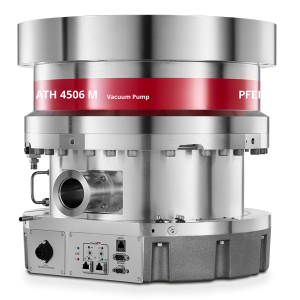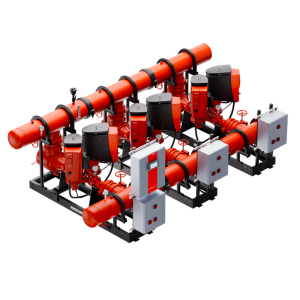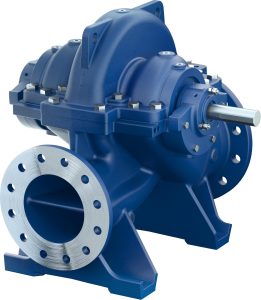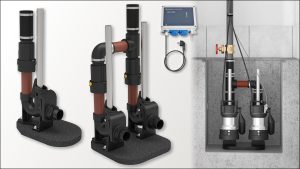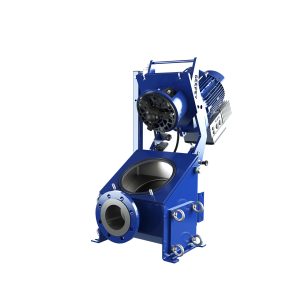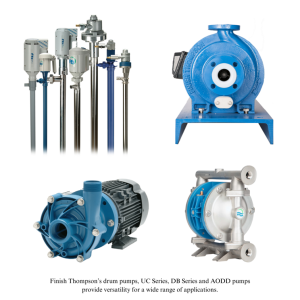Low-Pressure Diaphragm Pump for Hygienically Sensitive Processes by Lewa
A diaphragm pump enables exact flavor metering or pinpoint addition of filtration aids in the food and beverage industry.
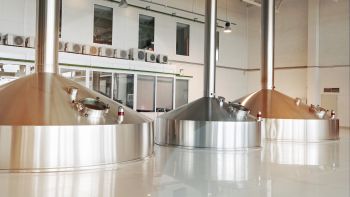
LEWA GmbH
Above all, manufacturers of foods and beverages strive to ensure high recognition value by keeping flavors consistent. They do so using high quality standards in the manufacturing process. For example, brewing alcohol-free beer requires particular attention to detail. This is because the valuable flavoring agents extracted from beer containing alcohol must be metered with perfect timing and in precisely defined quantities in order to achieve a characteristic beer flavor. The same principle applies to beer containing alcohol. The work steps of the brewing process must be carried out right on schedule and exact metering amounts for the ingredients must be observed to maintain consistently high product quality. Lewa developed the Ecodos diaphragm metering pump especially for complicated metering processes. This pump has a hygienic design that can be used for the low-pressure range of < 20 bar in the food and beverage industry. Thanks to its high reliability and metering accuracy of ± 1 percent, it also fulfills all specifications required for use in the hygienic processes of the food and beverage industry. The gentle, low-shear fluid conveyance in the pump corresponds to the requirements for sensitive production applications with high hygienic standards and opens up a wide spectrum of potential applications.
Especially for production sequences that are subjected to stringent hygienic standards, it is absolutely necessary for the production equipment to stand out for its reliable function and low maintenance requirements. Lewa achieves this for the Ecodos series by using high-quality individual components and is able to rely on its many years of experience in this area to ensure flawless technical implementation. This is particularly evident from the life cycle costs, which are remarkably low in comparison to other solutions. The regular service life of a diaphragm is approximately 16,000 operating hours, which corresponds to two years of continuous operation. The 4-layer diaphragm construction is what enables the long duration of use. It consists of two operating diaphragms, a monitoring diaphragm and a pressure-resistant safety diaphragm with integrated monitoring mechanism. The special design of the system makes it more durable, hermetically tight and free of leakage. Overall, it is much safer than other solutions. In the event of damage to the product-contacting diaphragm, these properties also enable batch production to be ended safely and without contaminating the product.
Dead space optimization
Easy maintenance and cleaning of the Lewa Ecodos is ensured through the special geometric design of the pump head. Using pump heads made of polypropylene (PP) or electropolished stainless steel in the hygienic design variant makes it easier to clean the product-contacting surfaces. These heads are manufactured with a surface roughness of 0.5 µm so that adhesion of conveyed media can be largely eliminated and fluid residue is easy to remove. Depending on the type of conveyed media, there are insert rings made from various materials for the valve seats of the stainless steel pump heads, and even the valves themselves are selected on an application-specific basis. Only materials that have been approved in accordance with FDA and USP Class VI are used for pressurized and wetted components. In addition, the design of the pump head fulfills the EHEDG design specifications.
Stainless steel grade 1.4435 has established itself as the most suitable material selection for applications with high requirements. Thanks to its unique material properties, this special stainless steel with reduced carbon and ferrite content is exceptionally suitable for manufacturing pump heads that operate in ranges up to 20 bar and media temperatures of 80 °C. A more cost-effective alternative material is used if temperature and pressure requirements are low within the process. In order to avoid process media residues within the pump head to the greatest possible extent, these pump heads are designed with a special geometry that counteracts fluid residues. The dead space optimized design of the pump head offers multiple advantages. One advantage is that the quantity of process fluid can be kept to a minimum in the working area, enabling washing, emptying or drying processes to be carried out seamlessly. Another advantage is the fact that easy cleaning (CIP) and/or sterilization (SIP) is enabled directly at the work site.
Modular design increases flexibility and the range of potential applications
In order to uphold all aspects of demanding international standards, Lewa uses exclusively IEC motors from renowned manufacturers for operating the Ecodos pumps. These motors are installed vertically to save space. Based on the area of application and performance requirements, spring-cam drive units are installed for the smaller models, while variable eccentric drives are used exclusively at higher performance levels. Depending on the size of the pump, one single-drive unit per pump head can be used to convey anywhere from 0.4 to 1,500 l/h. In order to avoid oil flowing out when the pump head is being changed, the drive housing is sealed off from the drive unit.
Combining multiple pump heads on a single power train to form what are called multiplex pumps allows the application area of the Ecodos models to be extended considerably. This special design is used primarily in recipe metering and for precise mixing tasks, since the pump heads being used can be accurately adjusted to recipe-specific quantities.
In order to satisfy as many customer-specific requirements as possible, the metered flow can be variably configured through both the stroke length and a frequency inverter. It is even possible to combine both parameters to increase the flexibility of the Ecodos pumps. This variability is further improved through the use of a servomotor and an intelligent control system, making it possible to increase the adjustment range of 1:50. All of these measures allow Lewa to achieve a metering accuracy of ± 1. Both the control system and the pump itself are tested for functionality and parameterized to the requirements of the respective customer before they leave the factory. This means that time-consuming optimization and configuration processes on-site are not necessary.
Use in flavor metering and addition of filtration aids
Especially in beer brewing, all ingredients must be added at exactly the right time and in specific quantities. In the case of non-alcoholic beer, the brewing process is even more complicated because the flavoring agents ensuring the characteristic beer flavor must first be extracted from beer containing alcohol and then added to the non-alcoholic brew. For this reason, these flavoring agents are stored in a vessel equipped with an agitator, cleaning ball and two level switches. Unwanted solid substances are removed by a filter in the suction line of the low pressure metering pump in order to guarantee the flawless function of the pump process valves. To adjust the volume flow rate continuously to the beer quantity being conveyed, the flow is monitored continuously by an electromagnetic flow meter and a control loop and adapted when necessary. The pump itself is protected on the discharge side through switch protection from possible overpressures in the system. In accordance with individual customer requirements regarding control and automation, the entire system can be operated either manually or through automation, e.g. using a PLC control system.
Another example is the low pressure metering pumps used in adding filtration aids. These pumps play an important part in the filtration of beer, wine, fruit juice and other beverages. In the process, diatomite slurries must be metered in precoat filtration. These slurries are used to separate yeast and high-molecular protein components. The first step in this process is the precoating of the filter plates, during which an evenly distributed diatomite suspension is introduced into the water flow or directly into the product. In the remainder of the process sequence, diatomite must be continuously added in specified metering quantities. This causes the filter cake to grow gradually and, as a result, the filter surface enlarges steadily. In this process, the pumps are in continuous operation, meaning that stringent requirements apply, especially in relation to hygiene. The pump s hermetic seal with the corresponding system connection ensures sterile conveyance of the product. Suspension-designed valves with special valve seats were selected in accordance with the respective process requirements and the pump connections use a setup such as a milk pipe design (DIN 11851) or are provided with hygienic screw fittings.
Source: LEWA GmbH

